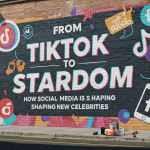Music is more than sound—it’s a reflection of society, a mirror of emotions, and a chronicle of history. Over time, music genres have evolved, merged, and transformed, telling the story of human culture through rhythm and melody. From tribal chants to digital beats, this journey through genres shows how music continues to shape—and be shaped by—the world around it.
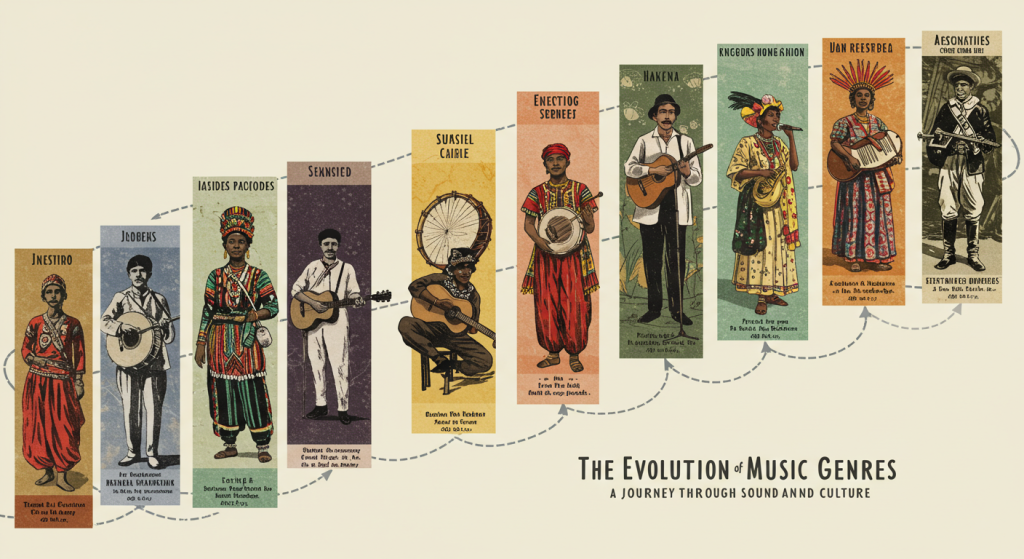
The Roots: Folk, Blues, and the Birth of Rhythm
Every genre has a beginning, and many of today’s sounds trace back to folk music—songs passed down through generations, often rooted in storytelling and tradition. In the early 20th century, blues emerged from African American communities in the southern United States, laying the emotional and musical foundation for countless genres to come.
With simple instruments and raw emotion, blues gave voice to pain, hope, and resilience, influencing early jazz, rock, and soul.
Jazz, Rock & Roll: The Sound of Rebellion and Innovation
In the 1920s, jazz took the world by storm, blending African rhythms with European musical structures. It was the sound of improvisation, freedom, and cultural fusion.
By the 1950s, rock & roll burst onto the scene—louder, faster, and rebellious. Artists like Elvis Presley and Chuck Berry ignited a cultural shift, giving youth a voice and challenging societal norms. The electric guitar became a symbol of resistance and expression.
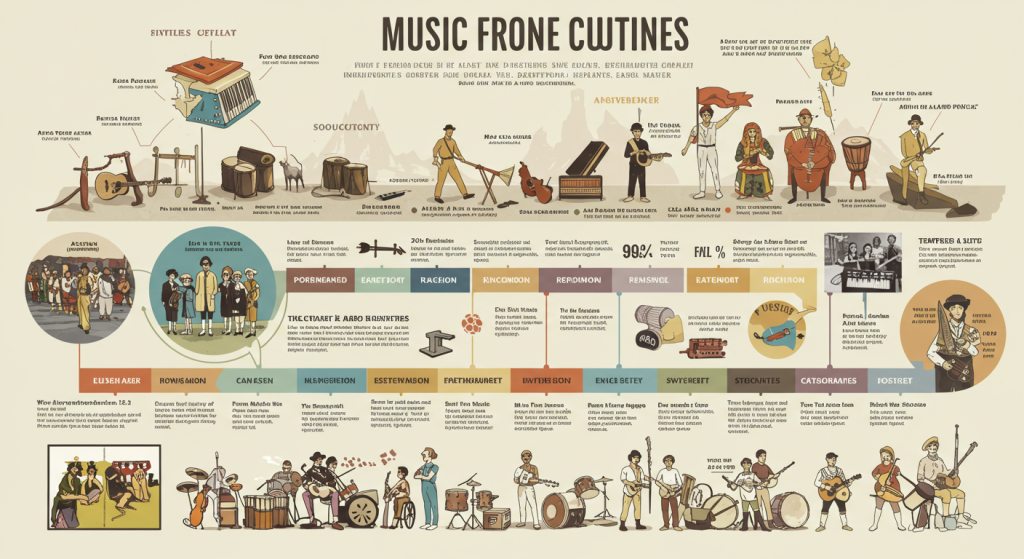
The Swinging ’60s to the Psychedelic ’70s
The 1960s brought a musical revolution with the rise of psychedelic rock, Motown, and folk protest songs. Music became a form of activism, with artists like Bob Dylan and The Beatles pushing creative and political boundaries.
In the 1970s, genres diversified. Disco ruled the dance floors, punk rock challenged the establishment, and reggae spread messages of peace and unity from Jamaica to the world.
Hip-Hop and Pop: The Voice of the Streets to Global Fame
In the late 1970s and early ’80s, a new genre rose from the Bronx: hip-hop. Born from DJs, MCs, breakdancers, and graffiti artists, it quickly evolved from street culture into a global movement. Hip-hop gave voice to marginalized communities, discussing real-life struggles with rhythm, rhyme, and swagger.
At the same time, pop music exploded, thanks to artists like Michael Jackson and Madonna, blending catchy hooks with visual storytelling through the rise of music videos.
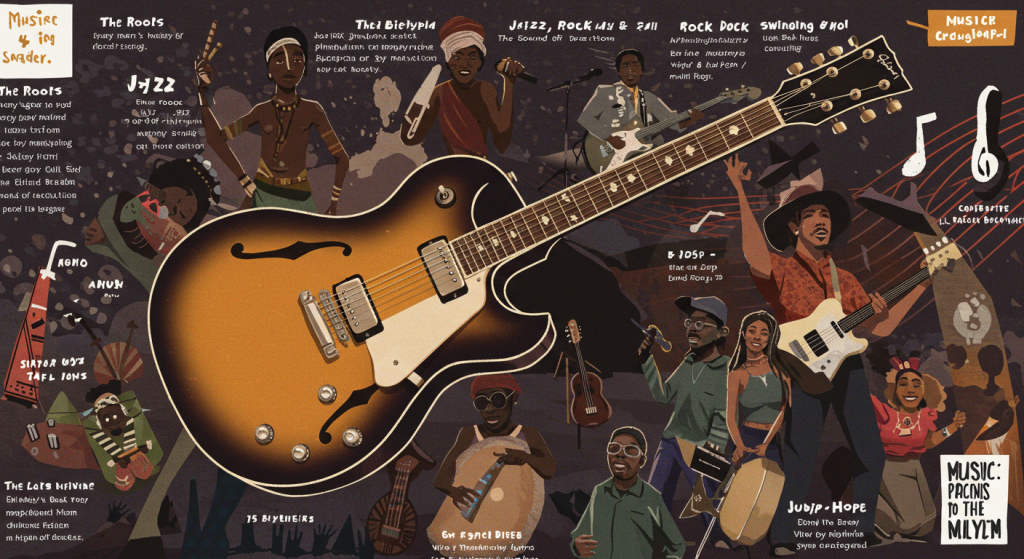
Electronic, Indie, and Genre-Blending in the Digital Age
As technology advanced, so did sound. The ’90s and 2000s introduced electronic genres like techno, house, and EDM, bringing music from clubs into mainstream culture.
Meanwhile, the indie scene—characterized by DIY production and raw authenticity—grew in influence, giving rise to artists who defied commercial expectations.
Today, the lines between genres blur. Artists freely mix elements of rap, rock, R&B, country, and even classical. The internet has made global influences more accessible, sparking collaborations that once seemed unlikely.
Cultural Impact and Social Movements
Throughout history, music genres have not just evolved—they’ve inspired movements. From civil rights to climate awareness, music continues to unite, protest, and uplift. Genres like Afrobeats, K-pop, and Latin pop are breaking records and borders, showing how cultural exchange shapes the sounds of the future.
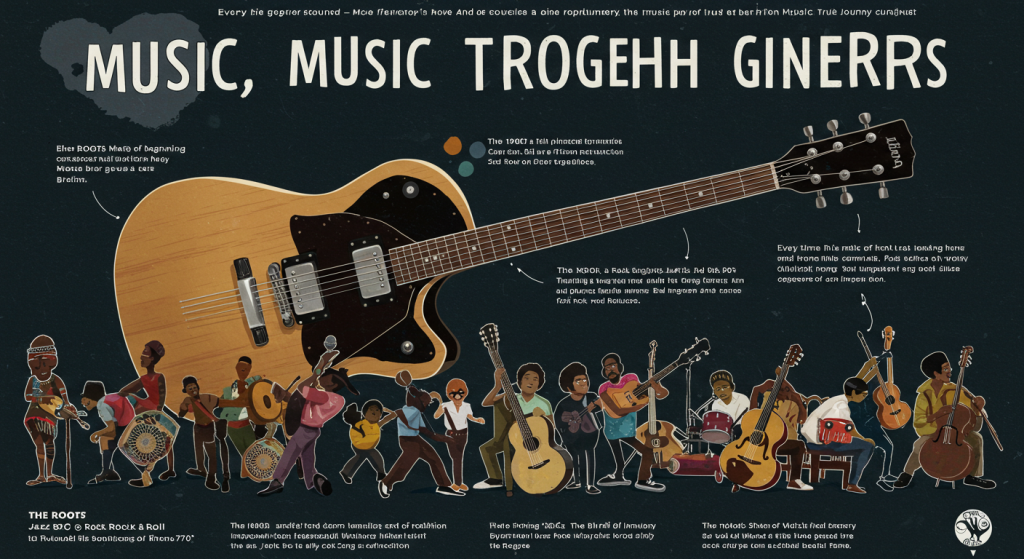
The Future of Sound
With the rise of streaming, AI-generated music, and virtual concerts, the next chapter of music evolution is already being written. What won’t change is the core of music—its power to connect, express, and transform.
Final Note
The journey through music genres is a journey through human creativity, emotion, and identity. Each genre tells a story—of a time, a place, a people. And as our world continues to change, so will the sounds we create and celebrate.
So plug in, press play, and enjoy the ride—because music will always be evolving, just like us.

